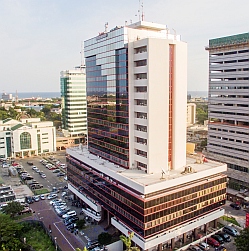Fitch rates UBA’s $1.5 billion global medium-term note programme ‘B’
Fitch Ratings has assigned United Bank For Africa Plc’s (UBA) new USD1.5 billion global medium-term note programme (GMTN) expected long- and short-term ratings of ‘B(EXP)’and ‘B(EXP)’, respectively.
The programme allows for borrowings for various tenors in the form of both senior unsecured and subordinated debt notes. The expected ratings are in line with UBA’s Long- and Short-Term Issuer Default Ratings (IDR) of ‘B’ and ‘B’, respectively, and apply only to senior unsecured notes issued under the programme.
In the case of subordinated debt issuance, the issue’s features will require further evaluation for the purpose of assigning a rating. There is no assurance that all notes issued under the programme will be rated or that all rated notes will be aligned with the programme rating.
Simultaneously, Fitch has assigned the five-year senior unsecured notes issue under the USD1.5billion GMTN programme an expected ‘B(EXP)’ rating and Recovery Rating (RR) of ‘RR4’.
The assignment of final ratings to the GMTN programme and senior notes is contingent upon receipt of final documents conforming to information already received by Fitch.
Read This: Disregard reports of severed partnership with EOCO – PIAC says
KEY RATING DRIVERS
The programme and senior unsecured debt ratings are in line with UBA’s Long- and Short-Term Foreign-Currency IDRs, reflecting Fitch’s view that the likelihood of default on senior unsecured notes issued under this programme will be the same as the likelihood of UBA’s default. The senior unsecured debt’s ‘RR4’ rating reflects average recovery prospects upon the bank’s default.
Senior debt issued by UBA under its programme constitutes direct, unconditional and unsecured and unsubordinated obligations of the bank and will rank at least pari passu with all other outstanding unsecured and unsubordinated obligations of the bank.
UBA’s IDRs are driven by its standalone creditworthiness, as reflected in its ‘b’ Viability Rating (VR). The VR considers UBA’s exposure to the Nigerian volatile operating environment, but also the bank’s healthy profitability and adequate capitalisation, which provide reasonable capacity to absorb losses from an economic downturn.









